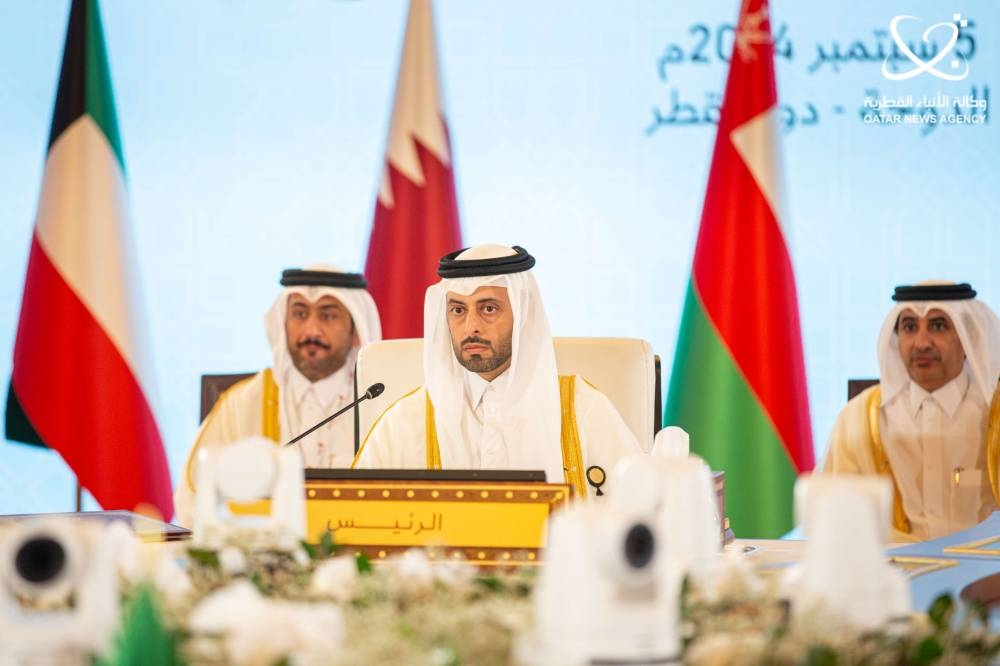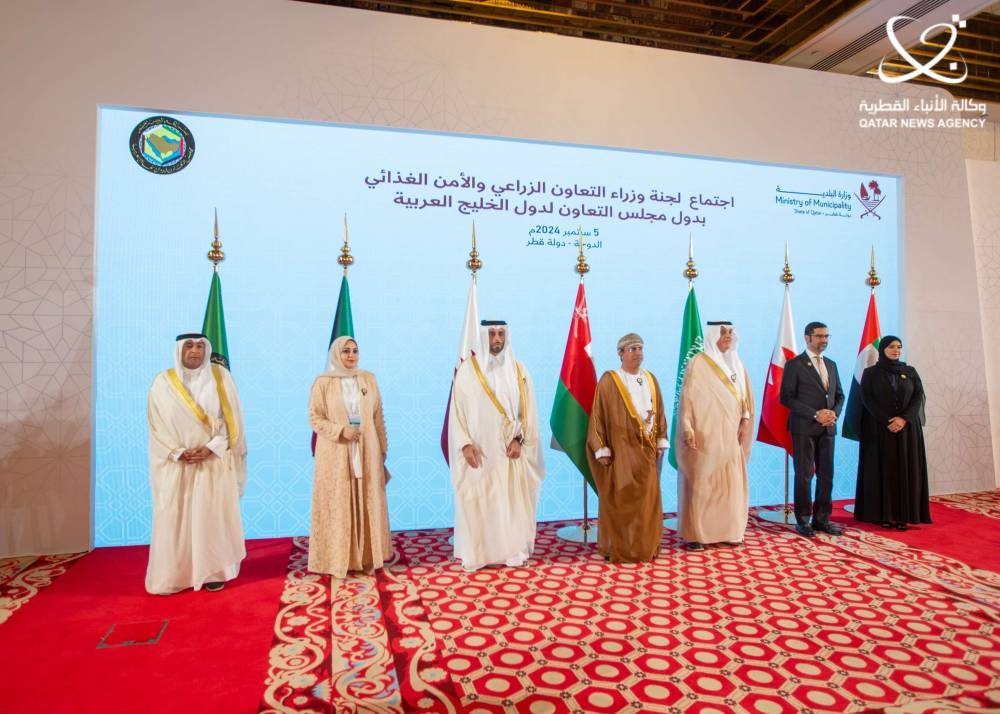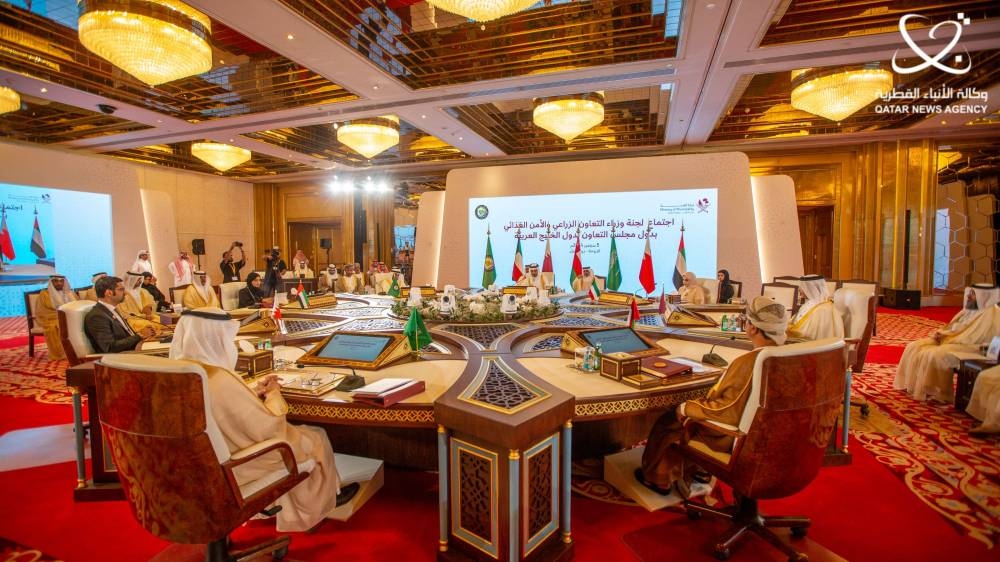Qatar
Qatar chairs 36th meeting of Agricultural cooperation, food security committee of GCC Countries



The Agricultural Cooperation and Food Security Committee of the Gulf Cooperation Council (GCC) countries held its 36th meeting in Doha today.
The meeting was chaired by HE Minister of Municipality Abdullah bin Hamad bin Abdullah Al Attiyah, President of the current session, with the presence of HE Secretary-General of the GCC, Jasem Mohamed Albudaiwi and the participation of Their Excellencies, the Members of the Agricultural Cooperation and Food Security Committee of the GCC countries.
Addressing the meeting, HE the Minister of Municipality, stressed that food security has become one of the most important challenges facing our countries, especially in light of climate change, population growth pressures, and fluctuations in global markets, explaining that the heavy reliance on imports to meet food needs makes GCC countries vulnerable to external fluctuations, which highlights the importance of adopting comprehensive national and regional strategies to enhance self-sufficiency and ensure the sustainability of food resources.
His Excellency stressed the importance of adopting policies that support sustainable agriculture, encouraging investments in the local agricultural sector, and developing modern agricultural technologies that contribute to increasing production and reducing resource consumption, in addition to the importance of paying special attention to initiatives that enhance cooperation between the GCC countries. He noted the remarkable progress witnessed in recent years in the field of food security in the GCC countries. He also commended the joint between member states to achieve this goal by enhancing cooperation to ensure the transformation of national food systems into healthy, sustainable systems capable of withstanding crises.
His Excellency highlighted the production leap achieved by the State of Qatar during the past five years in terms of food security, in terms of significant growth in cultivated areas and quantity and production, in addition to achieving 100 percent self-sufficiency of fresh dairy products and their derivatives and fresh poultry. HE the Minister also highlighted the initiatives launched by the Ministry to support all food security sectors.
His Excellency also praised the new National Food Security Strategy, which is scheduled to be launched soon, and which comes in line with the Third National Development Strategy (2024-2030), which eyes sustainability and reliance on modern technologies and innovation in the agricultural sector, in order to achieve Qatar National Vision 2030.
His Excellency also praised the remarkable efforts made by the sisterly Sultanate of Oman during its presidency of the Committee's last session, expressing appreciation to the GCC General Secretariat for its continuous efforts in enhancing joint Gulf action.
For his part, HE Secretary-General of the GCC, Jasem Mohamed Albudaiwi, extended his highest gratitude and appreciation to HH the Amir Shaikh Tamim bin Hamad Al-Thani, the President of the current session of the GCC Supreme Council, as well as to his brothers, Their Majesties and Highnesses, the leaders of the Cooperation Council states, for their continuous support in enhancing the path of joint Gulf action in various fields, especially in agriculture and food security.
HE Albudaiwi stressed that the GCC countries regard food security as a critical issue, one that concerns many nations and regional and international organisations, affirming that the GCC General Secretariat, through its strategic partnerships, places this issue at the top of its priorities, praising the excellent plans, distinguished programmes and significant steps taken by all the GCC states to ensure food security.
Their Excellencies, members of the GCC Agricultural Cooperation and Food Security Committee, discussed several important topics related to joint cooperation in agriculture, livestock, fisheries and food security among the GCC countries.
A number of unified regulations and laws were also approved in the meeting, such as the Organic Inputs and Products Law, the Common Law for Exploitation and Protection of Living Aquatic Resources in the GCC States, the Executive Regulations of the Law on Genetic Resources for Food and Agriculture, and the Executive Regulations of the Law on Fertilisers and Agricultural Soil Improvers. Additional relevant topics included in the meetings agenda were also discussed
